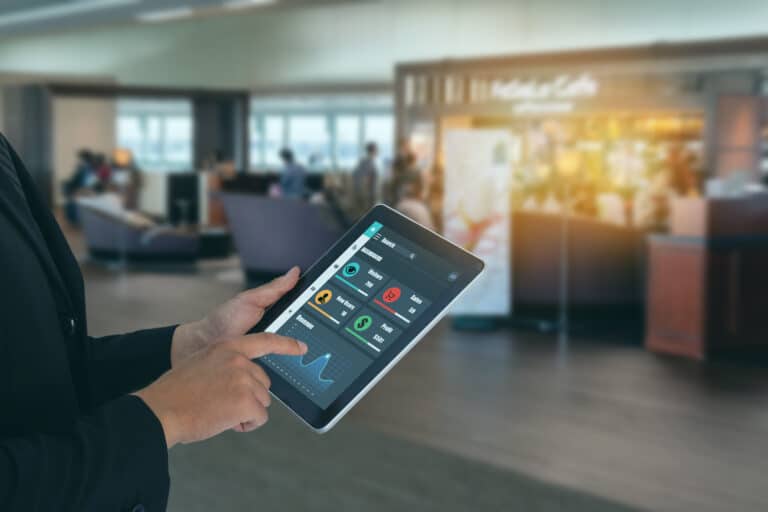As utility administrators, the complexities of utility management are a given. Daily operations often revolve around handling data, operational efficiency, and customer satisfaction. One game-changing solution at the forefront of streamlining these challenges is Advanced Metering Infrastructure (AMI). With a promising future and myriad benefits, AMI stands as a formidable ally for utility management.
Advanced Metering Infrastructure refers to a holistic system consisting of smart utility meters, communication networks, and data management systems. Its main objective is to enable two-way communication between utilities and customers, ensuring the seamless collection and transmission of energy use data in real-time.
Harking back to its origins, AMI is an evolved version of Automated Meter Reading (AM consider replacing this with “the earlier system” to avoid repetition). The transition from one-way data collection to real-time, two-way communication has been a monumental step in the energy industry, marking the beginning of a new era in utility management.
The Multifaceted Benefits of AMI
Real-time Usage Data
AMI meters collect data in real-time, facilitating immediate access to accurate usage information. This feature enhances utility companies’ ability to analyze and manage energy demand more effectively.
Operational Efficiency
Streamlined data collection and transmission save time and resources that might otherwise be allocated to manual meter reading and data management. This leads to significant improvements in operational efficiency, reducing the workload on utility staff and eliminating human error.
Exceptional Customer Service
Armed with real-time data, utility companies can provide personalized services to their customers. From resolving disputes swiftly to implementing flexible pricing structures based on usage patterns, AMI empowers utilities to deliver superior customer service.
Mitigating Energy Theft
AMI systems can detect irregularities in energy consumption, a key feature in the fight against energy theft. Through pattern analysis and real-time monitoring, utilities can identify and address cases of unauthorized usage swiftly.
AMI and Sustainable Utility Management
In a world striving towards sustainable practices, AMI’s role in promoting efficient energy usage cannot be understated.
By providing a granular view of energy consumption patterns, AMI enables utilities and consumers to identify areas of wastage, thereby facilitating targeted interventions to reduce unnecessary usage.
Moreover, AMI systems align perfectly with the objectives of smart grids, promoting grid stability while integrating renewable energy sources more efficiently. As such, they provide a powerful tool for utility companies aiming to contribute to broader sustainability goals.
Overcoming Implementation Challenges
The implementation of Advanced Metering Infrastructure, while promising significant benefits, comes with its own set of challenges. Some of the most pressing issues include initial installation costs, data privacy concerns, the need for system integration, and workforce training.
Initial Installation Costs
The upfront cost of installing AMI can be a potential point of concern for some. This includes the price of the smart meters, communication hardware, and the software systems required to manage data. For many utility companies, especially smaller ones, this can be a deterrent.
However, these costs should be evaluated in light of the long-term efficiencies and cost savings AMI can offer. Through streamlined operations, real-time data access, reduced energy theft, and enhanced customer satisfaction, AMI systems can offer substantial return on investment over time.
Data Privacy Concerns
The real-time data collection and two-way communication feature of AMI raises concerns about customer data privacy. Utility companies need to ensure that they are in compliance with local and international data protection regulations.
To safeguard customer information, robust data encryption protocols, firewalls, and secure communication channels should be deployed. Regular audits and penetration testing can further ensure the security of customer data.
System Integration
Integrating AMI with existing utility systems can be challenging. These systems often require customization to align with current processes and technology. A seamless integration requires a detailed understanding of the existing infrastructure, the functionality of the AMI system, and potential compatibility issues. By choosing AMI systems that offer flexible integration options, these challenges can be effectively managed.
Workforce Training
The introduction of AMI requires a shift in workforce skills. Training utility staff to manage and operate the new system, understand the data it generates, and communicate its benefits to customers is crucial. This requires time and resources but is essential for the successful implementation and operation of AMI.
Customer Acceptance
Despite its many benefits, customer acceptance of AMI is not guaranteed. Concerns over data privacy, changes in billing methods, or perceived health risks associated with smart meters can result in resistance. Public education campaigns highlighting the benefits of AMI, coupled with clear communication on data security measures, can help mitigate these concerns.
An experienced AMI provider can be a valuable ally in navigating these challenges. From initial system design and installation, through integration and workforce training, to ongoing operation and maintenance, their expertise can help ensure a smooth and successful transition to AMI. Moreover, they can provide guidance on regulatory compliance and customer engagement strategies, further easing the implementation process.
The Future of AMI: A World of Possibilities
Currently, the world of AMI is abuzz with exciting developments. The integration of Internet of Things (IoT) devices, enhanced by AI and machine learning capabilities, is pushing the boundaries of what’s possible with AMI systems.
Future advancements could include predictive maintenance capabilities, further enhancing operational efficiency by enabling proactive issue identification and resolution. Moreover, the integration of AI could facilitate more sophisticated data analysis, providing deeper insights into consumption patterns and enabling more effective demand management.
Manage Your Advanced Metering Billing More Effectively with silverblaze
Advanced Metering Infrastructure presents a remarkable opportunity for utility administrators to enhance operational efficiency, deliver superior customer service, and contribute to sustainability goals. By effectively managing the implementation challenges and keeping an eye on the latest advancements, you can leverage AMI to take your utility management operations to new heights.
At silverblaze, we provide a comprehensive utility customer engagement platform designed to integrate with a wide variety of systems to help you maintain more profitability while also increasing customer engagement and satisfaction. To learn more about how you can take better control of your utility operations, request a demo today.



